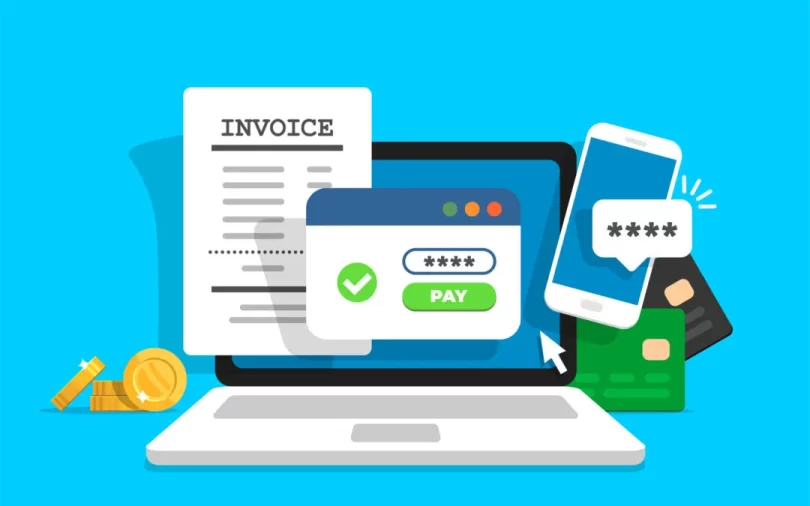In today’s hectic world, there has never been greater pressure on companies to have their accounts in order. Filing mistakes can lead to severe penalties such as losing money, compromising compliance, and poor decision-making. And this is where invoice processing automation comes in. It has completely transformed the way organizations handle invoices, forcing them to process invoices rapidly, neatly, and securely. Although there are still some manual accounting procedures, the shift toward automation is a game-changer for businesses that want to attain error-free financial management.
- The Disadvantages of Manual Invoice Processing: Manual invoice processing is time-consuming and complicated. Accountants must obtain invoices from different sources, read each detail thoroughly, and manually enter the data into accounting systems. Even the most skilled professionals are susceptible to mistakes because of the process’s repetitiveness. A single typographical mistake or a field omission can lead to enormous financial discrepancies. In most cases, companies are unaware of the mistakes until the damage has been done. Late payments and forgotten bills are common problems that compromise the financial stability of companies running manual operations.
- Understanding the Power of Automation: Automation provides a powerful solution to all these problems. With the help of smart technology to handle invoices, businesses can achieve such precision that human hands cannot provide. Invoice processing automation reads invoices, deciphers the related information, and feeds it straight into accounting systems without the intervention of human hands. This prevents many hazards posed by manual labor. The software can handle invoices coming from a range of sources, whether via email, scan, or straight upload. Automation makes sure every invoice is dealt with correctly and within time.
- Why Automation Reduces Human Errors: Another tremendous advantage of automation is the reduction in human errors. Computers are not susceptible to fatigue, distraction, and misinterpretation. When an invoice is scanned into an automatic system, the software manually verifies each detail and cross-checks it against past knowledge. This procedure ensures that every invoice is processed consistently, which reduces the chances of errors that usually take place manually. Even complicated invoice formats do not pose a problem, as computer automation software now is coded with intelligent features like optical character recognition (OCR) and machine learning.
- More Efficient Processing Time: Besides improving accuracy, also involved automation of invoice processing speeding up the entire accounting procedure. Processing requires hours or days, especially processing enormous quantities of invoices. Automation now makes it possible to execute the same operation within minutes. The system automatically retrieves and checks invoice information matches it with purchase orders or payment history, and records it accurately. As such, organizations can close their accounts earlier, make quicker decisions, and streamline their cash flow management without skipping crucial steps.
- Clear Visibility and Real-Time Tracking: Real-time tracking is another vast benefit of automation. One would find it tough to know an invoice’s status in a system that is manual unless one checks it personally. With automation, every invoice runs through a procedure that is well-documented and traced. From when an invoice is received until its payment, there is a trace of all stages in the system. This transparency makes it easier for finance departments to be in a position to track expenditures, manage pending bills, and have neat and organized records for audit or compliance checks.
- Seamless Integration with Existing Tools: Most companies are hesitant to adopt new technology for fear of losing their existing infrastructure. Thankfully, new automation software is programmed to harmonize with the most commonly used accounting packages. Whatever software is being used by a company, automation software will be able to integrate with their already existing infrastructure. Integrating allows companies to use software they are accustomed to, the added advantage being that it is automated as well.
- Reducing Costs and Boosting Efficiency: From missed discounts to late payment charges, the hidden cost of substandard invoice management quickly accumulates. With invoice automation processing, companies can cut these expenses significantly. Automation not only prevents errors but also prevents companies from having to hire huge accounting personnel, so companies can be more efficient. Further, by automating the tedium of data entry, companies can empower their accountants to do higher-level work such as financial analysis and strategic planning, which in turn leads to growth and innovation.
- Improved Compliance and Record-Keeping: Following regulatory requirements is a serious concern for companies in most industries. Poor management of invoices can result in lost documents, incomplete audit trails, and legal issues. Automation helps companies remain in full compliance by keeping accurate and detailed records of all invoices processed. Every document is safely stored and can be accessed immediately when required. Such diligent record-keeping not only places businesses in good regulatory standing but also establishes confidence with stakeholders, partners, and customers who need to be accountable and transparent.
- Realizing the Full Potential of Automation: Automating several procedures now and then can bring some benefits, but full accuracy and efficiency are only achieved when firms automate the whole invoice process. Starting from the receipt of an invoice to verification and approval, and ending with payment processing and posting. By committing fully to automation, firms can eliminate errors, speed up procedures, and gain full control of their finances.
- The Overall Positive Influence on Business Expansion: Through improved accuracy and efficiency in invoice processing, organizations are able to focus on their core activities. Reliable financial data enables leaders to make better decisions, while faster operations improve partnerships with suppliers and partners. Over time, these improvements yield more robust growth, better finances, and competitive edge in the marketplace. Organizations that invest in automation now are setting themselves up for a safer and more prosperous future.
In conclusion, automation of accounts payable processes offers businesses a powerful way of boosting accuracy and reducing errors in their financial processes. By avoiding the use of human intervention and leveraging smart technology, businesses can process more quickly, see more clearly, and be in better compliance. Automation is more than just a time-saver; it is a critical way of advancing long-term financial well-being and prosperity. Whenever more and more businesses observe the real potential behind automation, everyone can rest assured that finance in the future is for people who are looking to work harder.







